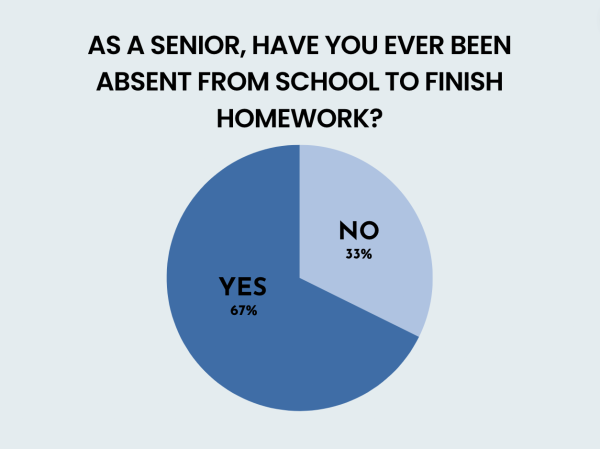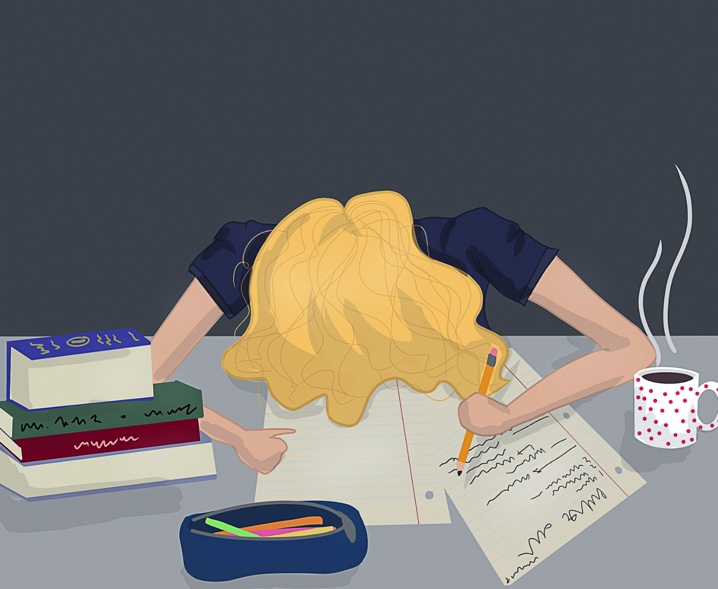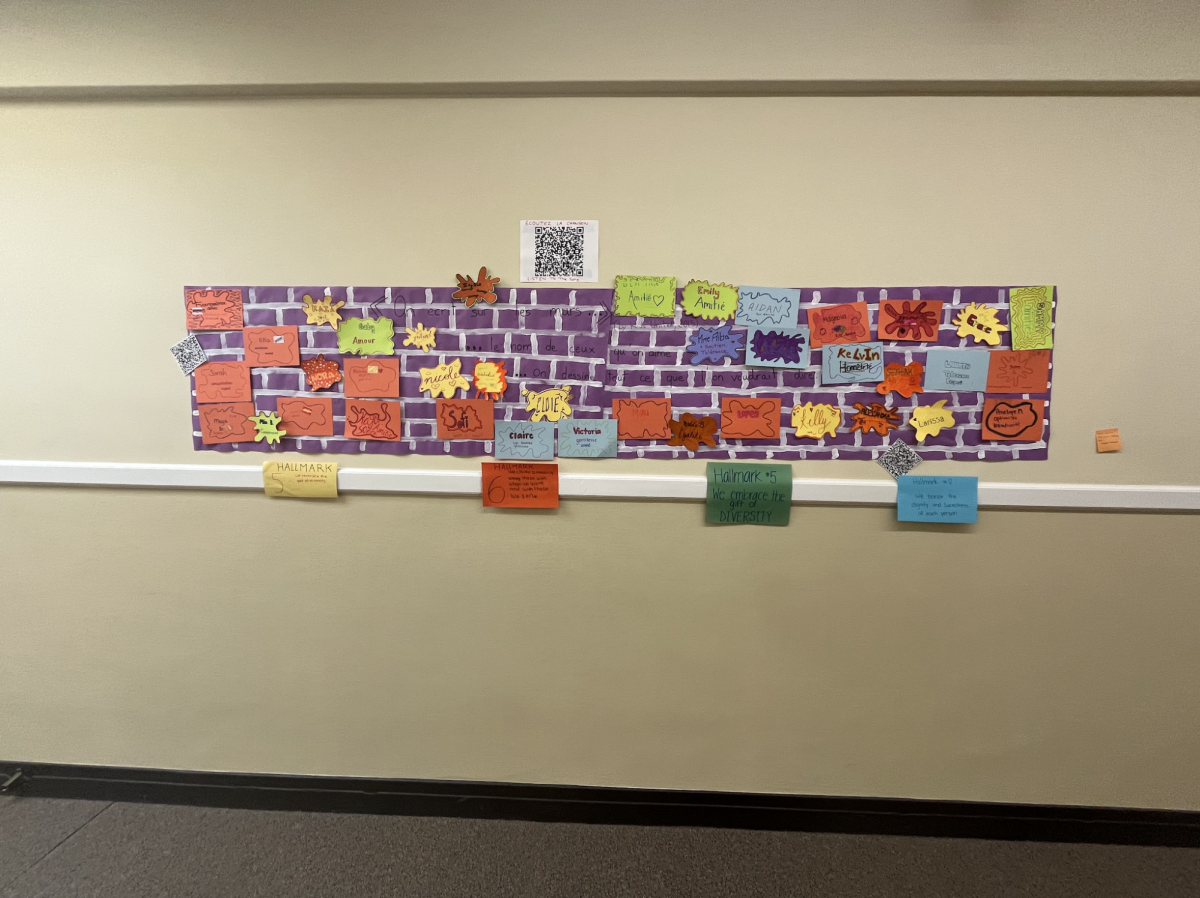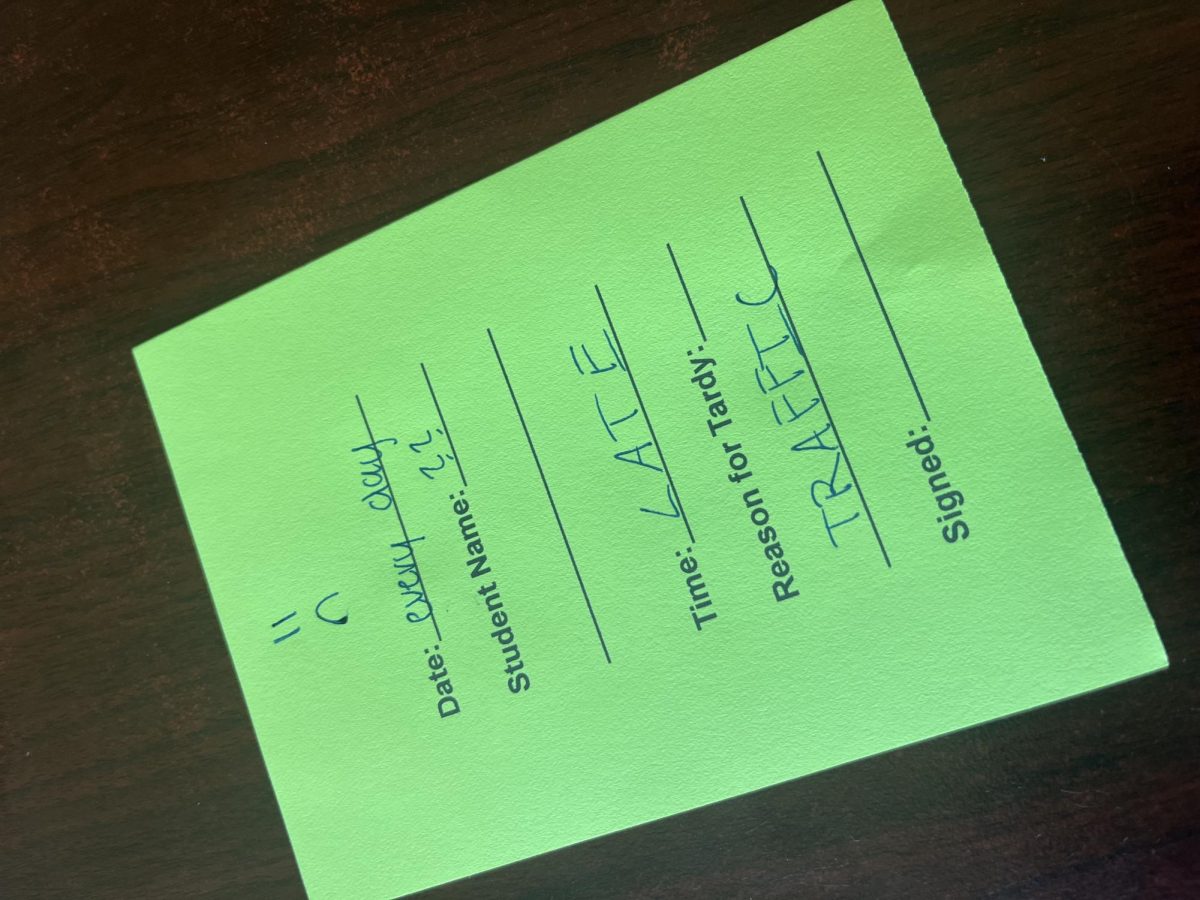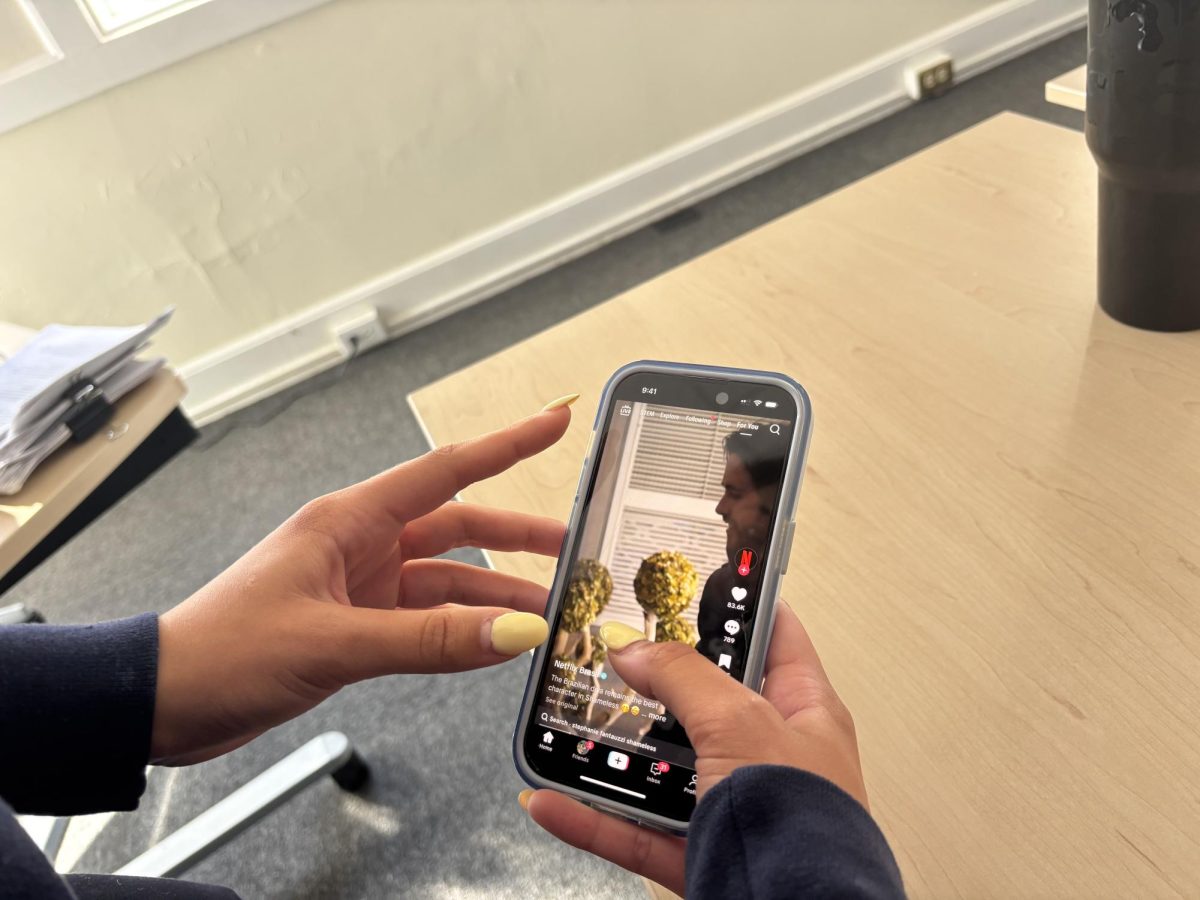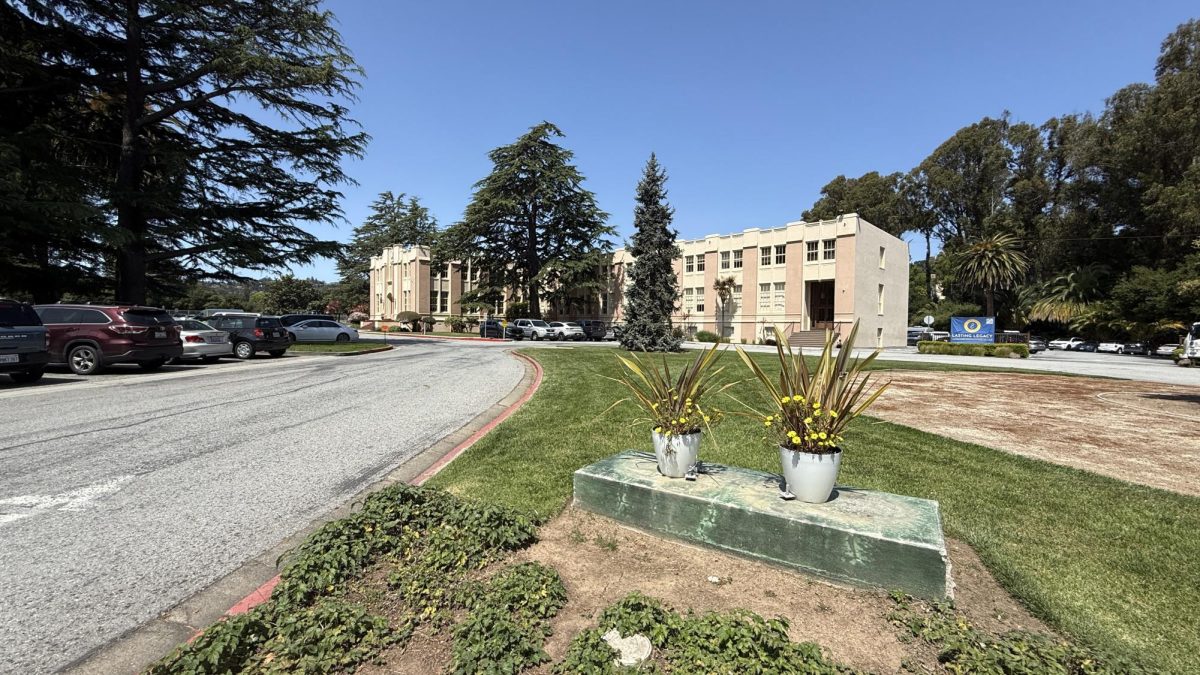Taking a day off of school may seem like an escape from responsibilities, but in actuality, several seniors choose to miss school to catch up on homework or sleep. While it is an unrealistic solution to a persistent problem, seniors continue to do so and are missing a substantial amount of school.
In a poll sent to the senior class, of which 65 seniors answered, 91% said they experienced an emotional breakdown this year due to workloads. It is not surprising that seniors have a lot of work. With college applications, academic rigor and extracurricular activities, it quickly gets busy. College applications have exponentially become more strenuous as acceptance rates go down at universities across the country. Students spend years building up their repertoire, getting engaged in clubs, sports and challenging courses. So, when senior year comes and they add college applications to their already full schedules, mental breakdowns are bound to occur.
In the same poll, 67% of those who responded stated that they had missed school to catch up on homework. For one question, 64% said that they had missed school to catch up on sleep.
When I began to research these absences, I interviewed many of NDB’s teachers. Every single one was more than accommodating to discuss this situation, but I noticed a recurring pattern from their responses: “This happens every year.”
In fact, it does. Former Editor in Chief Parker Daley ‘20 wrote an article about this same issue in 2019. That was four years ago. Yet, NDB still battles with appropriate homework loads and communication with students. If it happens every year, why has nothing changed? Why is it normal for seniors to feel so overwhelmed?
Social Science Department Chair Jonathan Tomczak noticed these absences as he teaches three blocks of the United States Government & Economics course, seeing about 60 seniors regularly.
“There is no substitute for being in the room with other students. It is the easiest way to access the content, but it’s also about the social dynamics of learning. That is not something you can learn when you’re behind and trying to catch up on work,” said Tomczak. “Obviously, things happen, and we try to be aware and forgiving of that, but when it happens so often, it is detrimental to the student’s learning overall, and there’s only so much that the student or a teacher can do to bridge that gap once an absence occurs.”
The solution to this seems easy. Why don’t seniors just minimize their workloads? Quit their job? Pause the guitar lessons? In my experience, it feels like we cannot. College applications demand impressive activities, and it seems too risky to let go of even one. I, myself, have sacrificed hours of sleep for what I thought was necessary to get into one of my top colleges. Granted, I hold leadership positions and take AP classes, so my workload is undoubtedly high, and that was my choice. But the reality is that it isn’t just me who does this; most Tigers do. We are involved and want to achieve – something that we pride ourselves on as a school. Unfortunately, though, it comes at a cost: usually sleep or school attendance. However, this coping mechanism to stressful situations is not applicable in the real world and has harmful effects on a student’s long-term performance.
So how, at a college preparatory school, can we be more prepared for what is to come? Teachers have a responsibility to cover necessary coursework and guarantee understanding. Hence, the need for homework. However, there is a fine line between homework and busy work. Homework, constructive and to the point, allows students to practice the skills learned in class. Busy work, on the other hand, is assigned as something to complete rather than because it is necessary. This is where a lot of the disconnect comes between teachers and their students. Students are quick to believe that an assignment is busy work, even when it is not. To address this, teachers could explain exactly how the work will benefit the students, making them more inclined to finish it. This would also minimize the amount of busy work because, if a teacher cannot validate the purpose of an assignment, they should not be giving it. Unfortunately, evaluating the importance of an assignment can take time. Still, it would allow teachers to fully understand their students’ abilities and realize that, sometimes, it is better to have one primary assignment than multiple secondary ones.
To address these nuances, an open line of communication between students and teachers is necessary. Teachers often give feedback to students on essays and tests, but it could also work the other way around. For example, several teachers send evaluation forms out at the end of every semester; however, it would be more beneficial if these forms were open semester-long. This would allow students to give active feedback on lesson and homework plans in real-time and would assist teachers in finding a realistic solution to improve the quality of learning at NDB.
Additionally, time management plays a large role in workloads, as was evident in both my conversations with teachers and students. Phones get in the way. According to Educational Technology Specialist Rebecca Girard, when a student takes a so-called “break” from homework to decompress and decides to scroll on their phone, it actually has a reverse effect. The brain is still consuming information and, therefore, not actually getting rest. This knowledge and other time management habits should be taught at the beginning of high school because, how can a student be expected to know this information if they have not been taught the skills yet?
Associate Head of School for Curriculum & Instruction Jolanda Breazeale is actively working to confront this issue.
“Finding the right balance between must-do, should-do, can-do is essential. I truly believe that, as we continue this conversation among thoughtful students and adults in the NDB community, we can build the scaffold to create a better experience for our seniors as well as the teachers who engage with this grade level student,” said Breazeale.
It is of the utmost importance to take teachers’ and students’ needs into consideration and be willing to adjust accordingly. Education is changing, and we must change with it.
